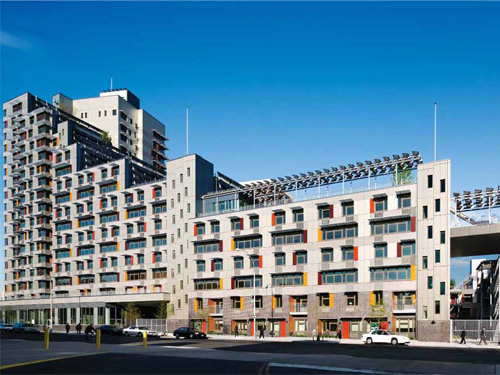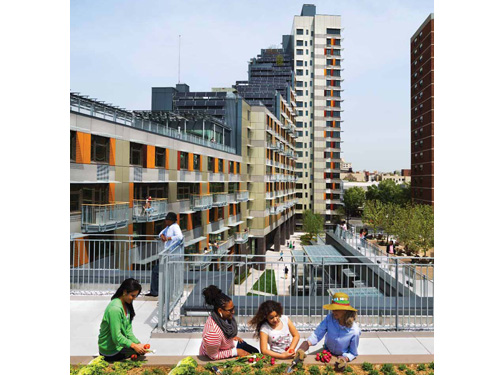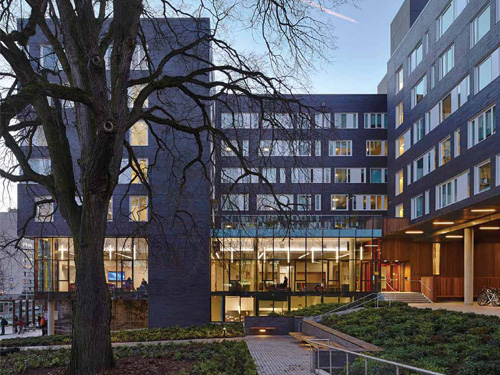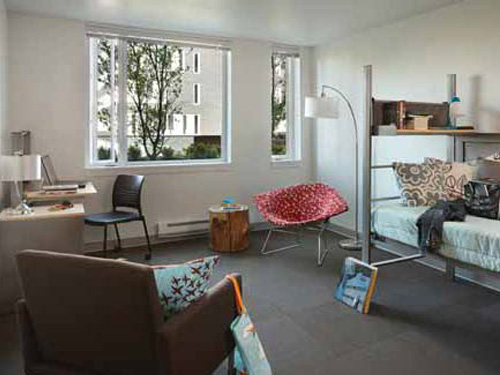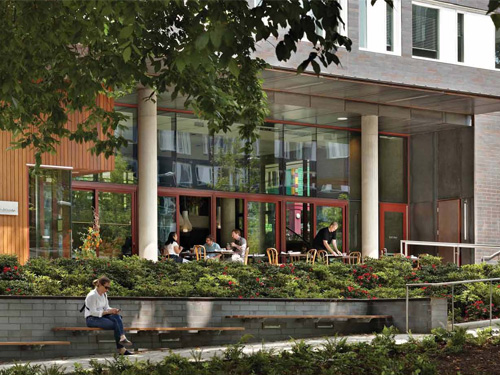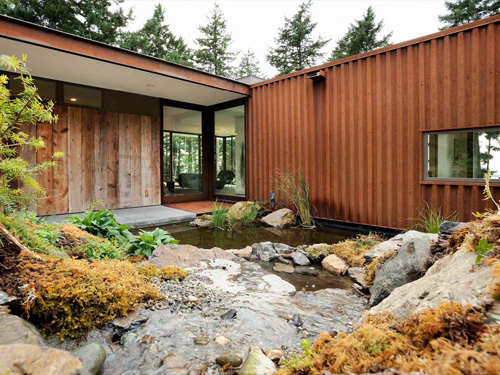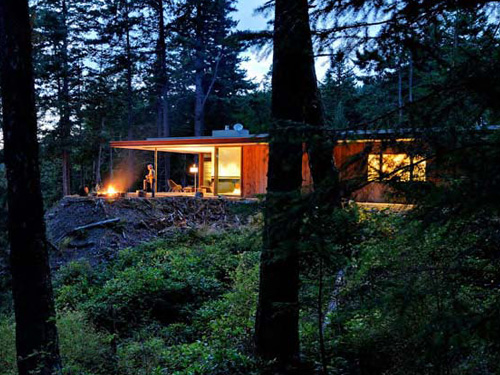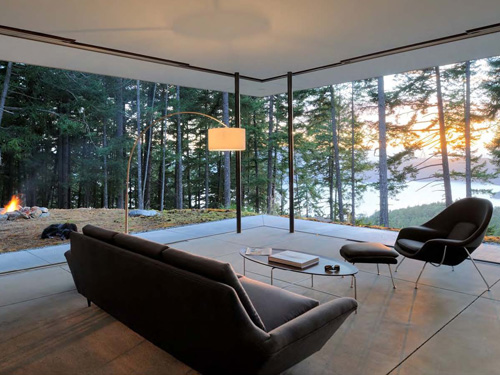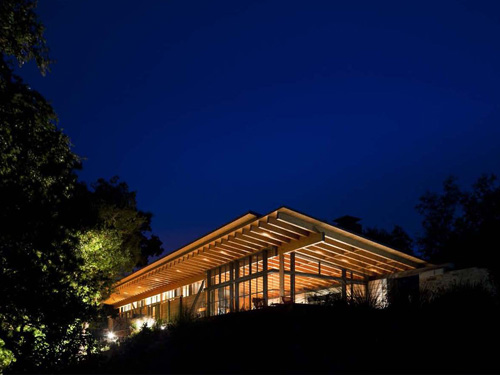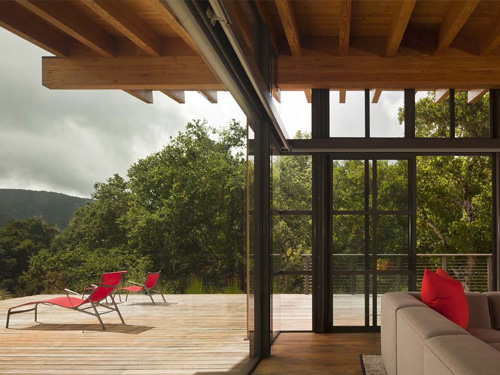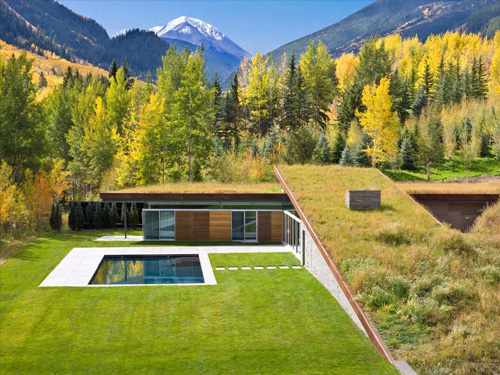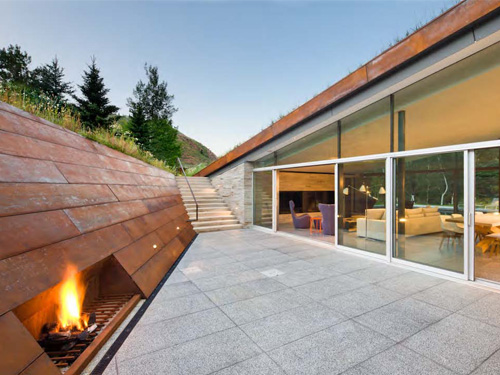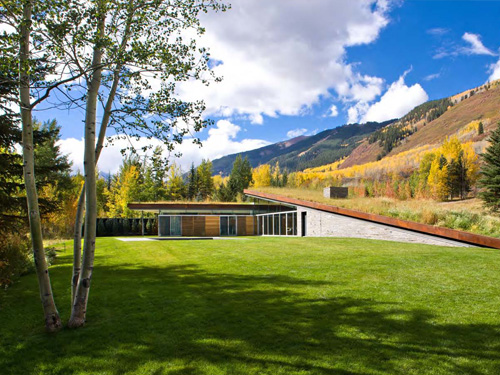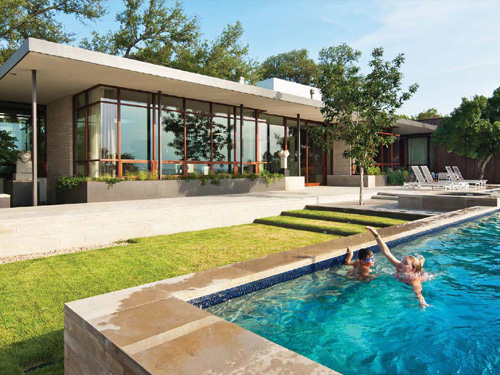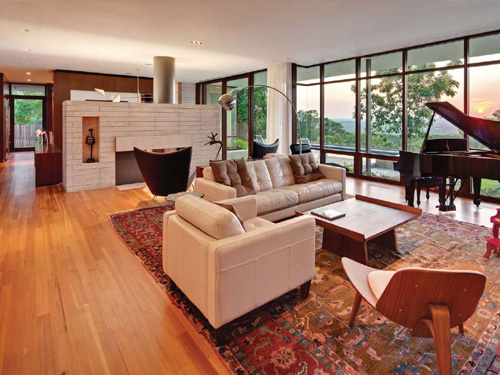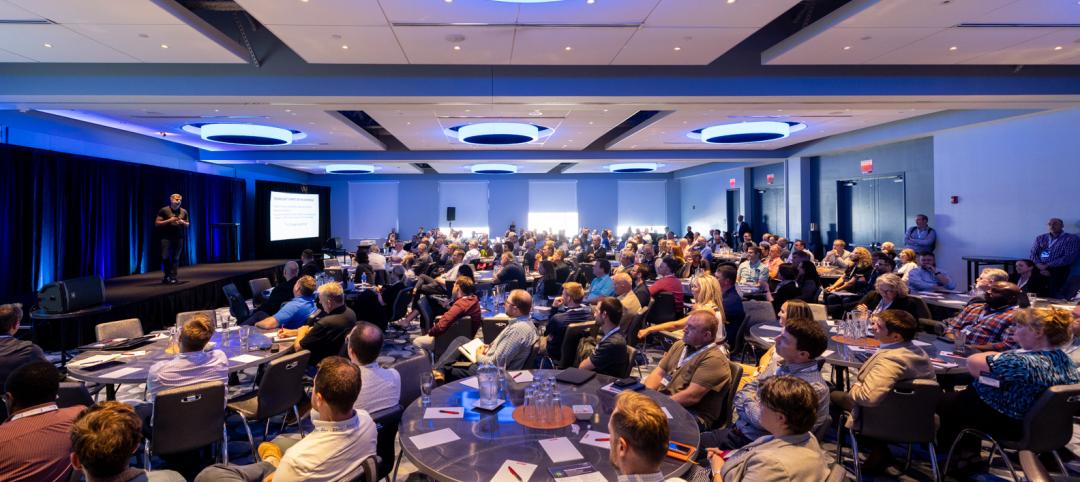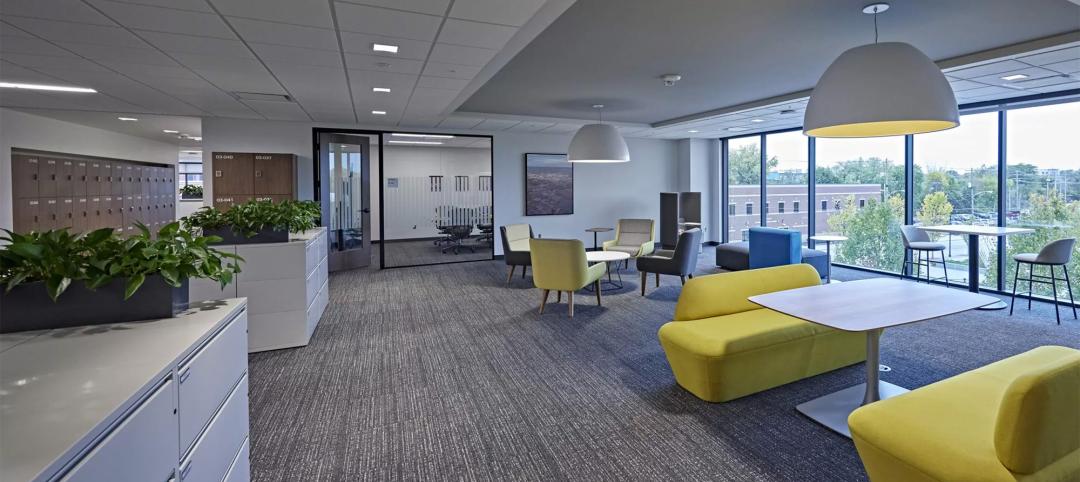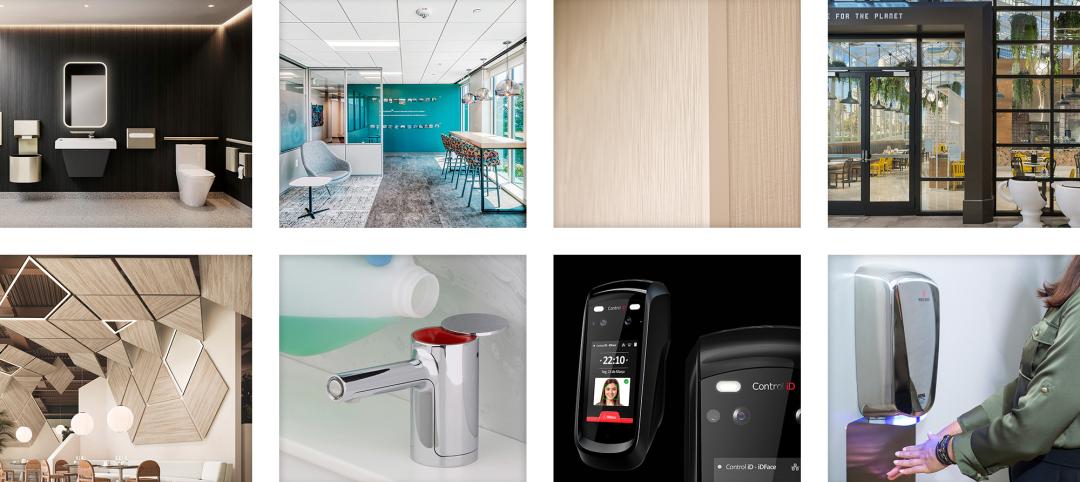The American Institute of Architects has selected the six recipients of the 2013 Housing Awards. The AIA’s Housing Awards Program, now in its 13th year, was established to recognize the best in housing design and promote the importance of good housing as a necessity of life, a sanctuary for the human spirit and a valuable national resource.
The jury for the 2013 Housing Awards includes: Kathleen Dorgan, AIA, Chair, Dorgan Architecture & Planning; John Isch, AIA, RWA Architects, Inc.; R. Thomas Jones, AIA, California Polytechnic State University; Stephen Sharpe, Hon. AIA and Charles L. Travis, AIA, The Housing Studio, P.A.
The jury recognized projects in four award categories: One/Two Family Custom Housing, One/Two Family Production Housing (none selected this year), Multifamily Housing and Special Housing.
Here's a recap of the winners (all images and descriptions courtesy AIA):
Multifamily Living Category
Via Verde - The Green Way; Bronx, New York
Dattner Architects and Grimshaw Architects
This mixed-use complex provides healthy, affordable urban living for low- and middle-income residents of the South Bronx. Built on a former brownfield site, the project comprises three building types: a 20-story tower, a 6- to 13-story midrise duplex apartment component, 2- to 4-story town houses, 222-unit complex includes.
Large windows, typically on two exposures, allow cross-ventilation and provide abundant daylighting. The garden begins as a courtyard on grade and steps up through a series of south-facing roof terraces. The terraces, many of which are accessible to residents, feature a small apple orchard and plots for growing vegetables while also providing storm water control, enhanced insulation, and mitigation of the urban heat island effect. Rainwater is collected and recycled for irrigation.
Specialized Housing Category
West Campus Housing - Phase I; Seattle
Mahlum Architects
Providing housing for 1,650 students in five buildings this project is the first phase of a student housing expansion for the university. The project has created a new walkable, transit-oriented neighborhood. To ensure the project is woven into the fabric of the city, it includes a number of publicly accessible spaces, including a 116-seat restaurant, 7,000-square-foot grocery store, café, conference center, academic support center, health and wellness center, and two retail spaces.
The exterior material palette was kept simple and economical: imperial-sized brick, white vinyl windows, wood, and weathering steel. Interior materials—mostly recycled, with no VOC content—were selected on the basis of reducing the energy required for shipping and manufacture.
One/Two Family Custom Housing Category
Eagle Ridge; Eastsound, Washington
Gary Gladwish Architecture
This project consists of a combined kitchen-dining-living area, study, master suite, art studio, and storage area, with the flexibility to add bedrooms or an apartment. To meet the client’s requirement that the house be highly efficient, it is constructed of structural insulated panels (SIPS). This method allows for a faster construction time, less waste generation, tighter construction, and better insulation. All the windows and doors are designed to surpass energy code requirements, and all of the lighting is either LED or compact fluorescent to reduce energy consumption. The siting and design of the house maximize passive solar benefits to reduce the energy load.
Halls Ridge Knoll Guest House; San Francisco
Bohlin Cywinski Jackson
The building is carefully detailed in stone, timber, and glass to respond to the site’s rolling topography, a forest of ancient live oaks and manzanita, and panoramic views of the San Clemente Mountains and Los Padres National Forest beyond. A stone wall anchors the building to the sloping site and screens the house and pool. A simple timber-framed shed roof springs from the stone wall, supporting naturally weathered zinc roofing over cedar-clad volumes. Expansive windows provide natural lighting throughout the house, and a broad overhanging roof provides shade from the intense summer sun. Sliding doors and operable hopper windows throughout the house use the prevailing winds for natural ventilation, while also providing expansive views of the mountain range.
House in the Mountains; Colorado
GLUCK+
Roof planes appear as native mountain meadows, making the structure practically invisible from the road above. These green roofs not only provide a super-insulated envelope but also preserve and highlight the original view from the existing house. Continuous clerestory windows wrap around the interior, screening out the road and revealing a spectacular mountain panorama. This clerestory creates a completely daylit space, with lighting necessary only at night. Solar panels are incorporated in the building façade. A retaining wall, clad in Cor-ten steel and cement board, slices diagonally across the site, capturing one side of the solar courtyard and, on the other, forming a private sunken court adjacent to the main living area.
Lake View Residence; Austin, Texas
Alterstudio Architecture LLP
The 5,900-square-foot house emphasizes views and a dynamic spatial sequence. A rich palette of materials on the interior, including mahogany cabinetry and longleaf pine floors, combines to create a warm environment. Oriented for optimal cross-ventilation and protection from the sun without eschewing the view westward, this project also features geothermal HVAC systems, a photovoltaic array, reflective TPO roofing, cellular foam insulation, tankless water heaters, and FSC-certified and reclaimed woods. The house also takes advantage of the tree canopy to provide additional shading, and carefully placed skylights bring diffused daylight to the interior and help reduce reliance on electric lighting.
Related Stories
AEC Tech Innovation | Jul 4, 2024
Caution competes with inevitability at conference exploring artificial intelligence for design and construction
Hosted by PSMJ, AEC Innovate in Boston found an AEC industry anxiously at the threshold of change.
Building Team | Jul 3, 2024
So you want to get published: What’s next?
In the AEC industry, securing media attention is no longer a niche endeavor but an essential component of a holistic marketing strategy.
Laboratories | Jul 3, 2024
New science, old buildings: Renovating for efficiency, flexibility, and connection
What does the research space of the future look like? And can it be housed in older buildings—or does it require new construction?
MFPRO+ New Projects | Jul 2, 2024
Miami residential condo tower provides a deeded office unit for every buyer
A new Miami residential condo office tower sweetens the deal for buyers by providing an individual, deeded and furnished office with each condo unit purchased. One Twenty Brickell Residences, a 34-story, 240-unit tower, also offers more than 60,000 sf of exclusive residential amenities.
Student Housing | Jul 1, 2024
Two-tower luxury senior living community features wellness and biophilic elements
A new, two-building, 27-story senior living community in Tysons, Va., emphasizes wellness and biophilic design elements. The Mather, a luxury community for adults aged 62 and older, is situated on a small site surrounded by high-rises.
Office Buildings | Jul 1, 2024
Mastering office layouts: 5 primary models for maximum efficiency and productivity
When laying out an office, there are many factors to consider. It’s important to maximize the space, but it’s equally important to make sure the design allows employees to work efficiently.
Smart Buildings | Jul 1, 2024
GSA to invest $80 million on smart building technologies at federal properties
The U.S. General Services Administration (GSA) will invest $80 million from the Inflation Reduction Act (IRA) into smart building technologies within 560 federal buildings. GSA intends to enhance operations through granular controls, expand available reporting with more advanced metering sources, and optimize the operator experience.
Sustainability | Jul 1, 2024
Amazon, JPMorgan Chase among companies collaborating with ILFI to advance carbon verification
Four companies (Amazon, JPMorgan Chase, JLL, and Prologis) are working with the International Living Future Institute to support development of new versions of Zero Carbon Certification.
K-12 Schools | Jul 1, 2024
New guidelines for securing schools and community spaces released by the Door Security and Safety Foundation
The Door Security and Safety Foundation (DSSF), in collaboration with Door and Hardware Institute (DHI), recently released of “Are Your Door Openings Secure?.” The document provides guidelines to equip school administrators, building management personnel, and community leaders with a clear roadmap to create a secure and safe environment.
Products and Materials | Jun 30, 2024
Top products from AIA 2024
This month, Building Design+Construction editors are bringing you the top products displayed at the 2024 AIA Conference on Architecture & Design. Nearly 550 building product manufacturers showcased their products—here are 17 that caught our eye.



